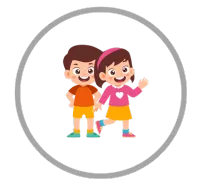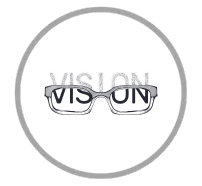Vision Therapy
Vision Therapy for Children’s Eye Health
FSDAVCFEBFEVSDDVFSD
FSDAVCFEBFEVSDDVFSD
FSDAVCFEBFEVSDDVFSD
How Vision Therapy Helps Children
Vision therapy is a non-surgical treatment designed to improve visual skills in children facing challenges such as poor focus, eye teaming issues, and visual tracking difficulties. These problems can impact reading, academic performance, and even participation in sports. By using customized therapy programs, children can strengthen the connection between their eyes and brain, enhancing their visual abilities.
At Kleinwood Vision, pediatric vision therapy is personalized to meet each child's specific needs. Utilizing tools like lenses, prisms, and eye exercises, children work on tasks that improve focus, eye coordination, and visual memory. If your child has trouble maintaining focus when reading or becomes fatigued during visual tasks, a pediatric eye exam is the first step in addressing these issues.
Vision therapy is a non-surgical treatment designed to improve visual skills in children facing challenges such as poor focus, eye teaming issues, and visual tracking difficulties. These problems can impact reading, academic performance, and even participation in sports. By using customized therapy programs, children can strengthen the connection between their eyes and brain, enhancing their visual abilities.
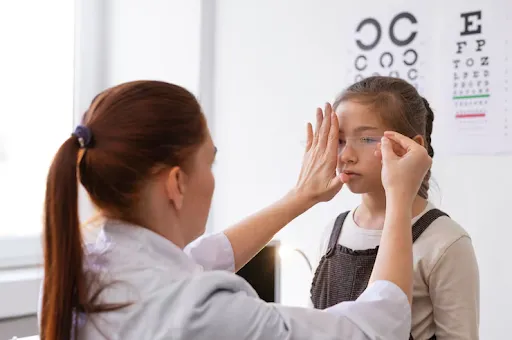
At Kleinwood Vision, pediatric vision therapy is personalized to meet each child's specific needs. Utilizing tools like lenses, prisms, and
eye exercises , children work on tasks that improve focus, eye coordination, and visual memory. If your child has trouble maintaining focus when reading or becomes fatigued during visual tasks, a pediatric eye exam is the first step in addressing these issues.

Signs Your Child May Benefit
Many children with visual challenges exhibit signs that are often mistaken for learning disabilities or attention problems. Issues like difficulty copying from the board, avoiding reading, skipping lines, or reversing letters may be linked to visual dysfunction rather than cognitive challenges. These symptoms can be overlooked, as they don't always correlate with traditional learning difficulties.
Additional signs such as frequent headaches, eye rubbing, short attention spans during tasks like reading, or complaints of blurred or double vision may also point to vision issues. Since these symptoms are often missed during standard vision screenings, it’s crucial to schedule a comprehensive pediatric eye exam. This allows for an accurate diagnosis and targeted treatment plan.
Vision therapy can effectively address the underlying causes of these visual challenges. Through a tailored therapy program, children learn to strengthen their visual skills and gain better control over their visual system. With consistent therapy, many children show significant improvements within a few months. These improvements are often reflected in their ability to focus longer during reading, increased confidence in completing homework, and enhanced coordination in physical activities, ultimately boosting their overall academic and athletic performance.
Common Pediatric Vision Issues
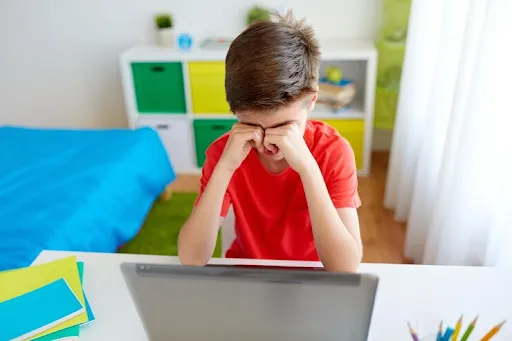
One of the most frequent reasons children are referred for vision therapy is convergence insufficiency where the eyes struggle to work together at close distances. This condition can make reading or writing especially difficult and tiring. Other common concerns include eye tracking problems, which make it hard for children to follow text smoothly across a page.
Focusing issues are also prevalent. Some children cannot maintain a clear image when switching between near and far objects, affecting classroom learning.

These problems can negatively impact performance without necessarily being due to poor eyesight. Fortunately, therapy can retrain the visual system. By using a variety of personalized exercises and vision-based games, therapy builds skills gradually. Each success helps reinforce the brain-eye connection, allowing children to read longer, stay more attentive, and feel more comfortable in visually demanding settings.
For parents seeking answers to their child's visual challenges, understanding the signs and causes of these issues is a crucial first step. Visual problems, such as difficulty focusing, avoiding reading, or skipping lines, are often mistakenly attributed to learning disabilities or attention issues. However, these behaviors may stem from underlying visual dysfunctions that can be addressed through proper treatment. Recognizing additional symptoms like frequent headaches, eye rubbing, and complaints of blurred vision is essential for identifying potential vision issues. These symptoms are often overlooked in standard vision screenings, making a comprehensive pediatric eye exam important for an accurate diagnosis.
Kleinwood Vision offers specialized pediatric eye exams to assess a child's visual health and identify any problems that may be affecting their academic and physical development. In addition to thorough eye exams, Kleinwood Vision provides customized vision therapy programs that help children strengthen their visual skills and improve coordination between their eyes and brain. These programs can lead to lasting improvements in focus, reading ability, and overall visual performance. Parents can rely on Kleinwood Vision’s expertise to support their child's eye health and ensure they receive the best possible care to foster academic and athletic success.
What Vision Therapy Involves
Vision therapy sessions are typically conducted on a weekly basis and tailored to meet each child's specific needs, based on the results of an initial functional eye exam. The sessions incorporate a mix of hands-on activities, computerized programs, and home exercises that reinforce the skills learned during the appointments. Unlike traditional approaches that focus solely on correcting blurry vision, vision therapy is designed to retrain how a child’s visual system functions under pressure.
Therapy often includes tasks that improve visual tracking, focusing stamina, eye-hand coordination, and visual memory. Tools like balance boards, flippers, and light boards are used to make the sessions both enjoyable and effective. As the therapy progresses, tasks become more challenging and functional, helping children develop the necessary skills to succeed in real-life situations. The ultimate goal is to enhance their ability to focus, learn, and engage more effectively in both academic and recreational activities.
Role of Parents and Educators
Parental involvement plays a critical role in the success of vision therapy. Children who regularly complete their home exercises tend to see faster progress. Open communication between parents, therapists, and teachers is essential to align goals and track improvements in school performance.
Parents should be alert to signs of progress, such as increased reading stamina or better handwriting. Teachers can support by noting when a child demonstrates improved focus, finishes tasks more efficiently, or experiences less visual fatigue throughout the school day.
Parental involvement plays a critical role in the success of vision therapy. Children who regularly complete their home exercises tend to see faster progress. Open communication between parents, therapists, and teachers is essential to align goals and track improvements in school performance.
Parents should be alert to signs of progress, such as increased reading stamina or better handwriting. Teachers can support by noting when a child demonstrates improved focus, finishes tasks more efficiently, or experiences less visual fatigue throughout the school day.
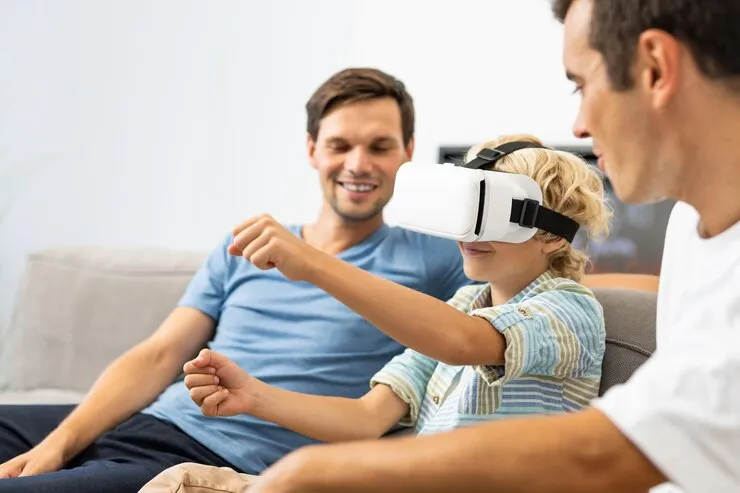
Celebrating these small successes both at home and in school can help maintain motivation and encourage children to stay committed to their therapy. With continued support from adults, children are empowered to overcome their visual challenges and achieve greater success in daily activities.

Celebrating these small successes both at home and in school can help maintain motivation and encourage children to stay committed to their therapy. With continued support from adults, children are empowered to overcome their visual challenges and achieve greater success in daily activities.
Long-Term Vision Development
The duration of vision therapy depends on the specific needs of each child. While some children see significant improvements within a few months, others with more complex challenges may require longer therapy programs. Regardless of how long therapy lasts, the results are typically long-lasting, especially when started at a young age. To ensure visual development continues on the right track, it's important to schedule regular eye exams. These exams help monitor any changes and address potential issues before they become more serious.
At Kleinwood Vision, therapy is customized to meet each child’s unique needs, with personalized care provided throughout the entire process. Follow-up appointments are essential for tracking improvements in visual coordination, reading efficiency, and attention span. These regular check-ins help ensure that therapy goals are being met and progress is being made.
Parental involvement is crucial for the success of vision therapy. Parents can support their child’s progress by encouraging regular screen breaks and ensuring a well-lit reading environment. Staying informed about pediatric vision therapy and the importance of routine eye exams allows parents to be proactive in addressing visual issues early on. This support from home reinforces the therapy efforts and helps maximize its effectiveness.
Vision development is a continuous process. With the right tools, guidance, and consistent support, children can develop strong visual skills that will benefit them academically, socially, and in everyday life. Kleinwood Vision’s approach ensures that every child receives the personalized care needed to succeed in visual tasks, while fostering overall growth and development.
When to Consider Therapy
If your child is struggling with reading, having difficulty copying from the board, or avoiding homework that requires close-up focus, these could be signs of a visual processing issue. Standard eye exams often overlook these concerns, making a comprehensive pediatric eye evaluation essential. This evaluation can determine whether vision therapy is needed to address the underlying issues.
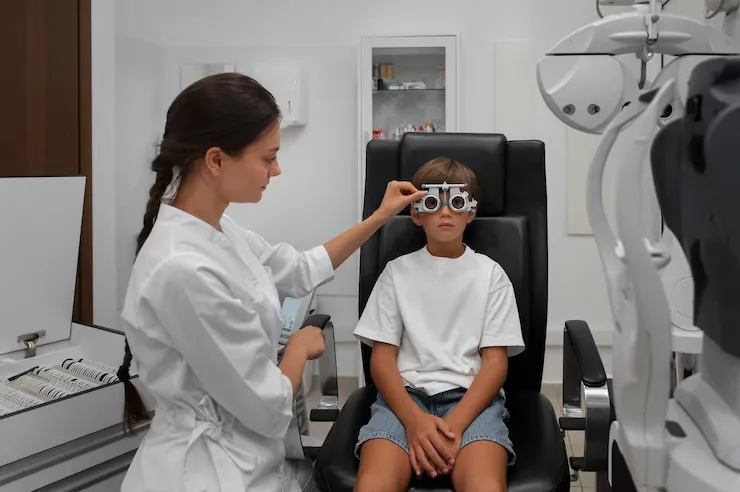
If your child is struggling with reading, having difficulty copying from the board, or avoiding homework that requires close-up focus, these could be signs of a visual processing issue. Standard eye exams often overlook these concerns, making a comprehensive pediatric eye evaluation essential. This evaluation can determine whether vision therapy is needed to address the underlying issues.
Consider vision therapy if your child experiences consistent problems with focus, frequent eye strain, or exhibits clumsiness that may indicate poor eye coordination. Addressing these concerns early can lead to better outcomes and prevent further struggles in academic and daily activities.
Consider vision therapy if your child experiences consistent problems with focus, frequent eye strain, or exhibits clumsiness that may indicate poor eye coordination. Addressing these concerns early can lead to better outcomes and prevent further struggles in academic and daily activities.
Vision therapy is a structured and measurable solution that goes beyond improving vision. It aims to help children succeed in school, participate in sports, and engage in everyday tasks with greater ease and confidence. Early intervention can set the foundation for lasting success in their visual and overall development.
Get Started with a Specialist
A strong visual foundation is key to a child’s learning and development. If your child struggles with reading, maintaining focus, or has difficulty with coordination, vision therapy could be the solution. At Kleinwood Vision, our team of experts provides comprehensive evaluations and tailor therapy plans to meet your child’s unique visual needs.
Vision therapy is designed to address visual processing issues, improve eye coordination, and support overall learning. Whether your child has trouble following text while reading, struggles with eye-hand coordination, or experiences visual fatigue, our customized programs can help. Regular eye exams, combined with therapy, ensure that your child’s visual system develops effectively, supporting their academic and personal success. To learn more about how vision therapy can benefit your child, visit our vision therapy service page or schedule a consultation today. Taking this step can help your child thrive academically and in everyday activities.

Contact Info
Hours of Operation
Mon - Fri | 9:00 AM - 5:00 PM
Sat - Sun | Closed
Holiday Hours: We are closed for the following holidays: New Years Day, Memorial Day, Independence Day, Labor Day, Thanksgiving Day, Christmas Day
© 2026 Kleinwood Vision. All rights Reserved.
